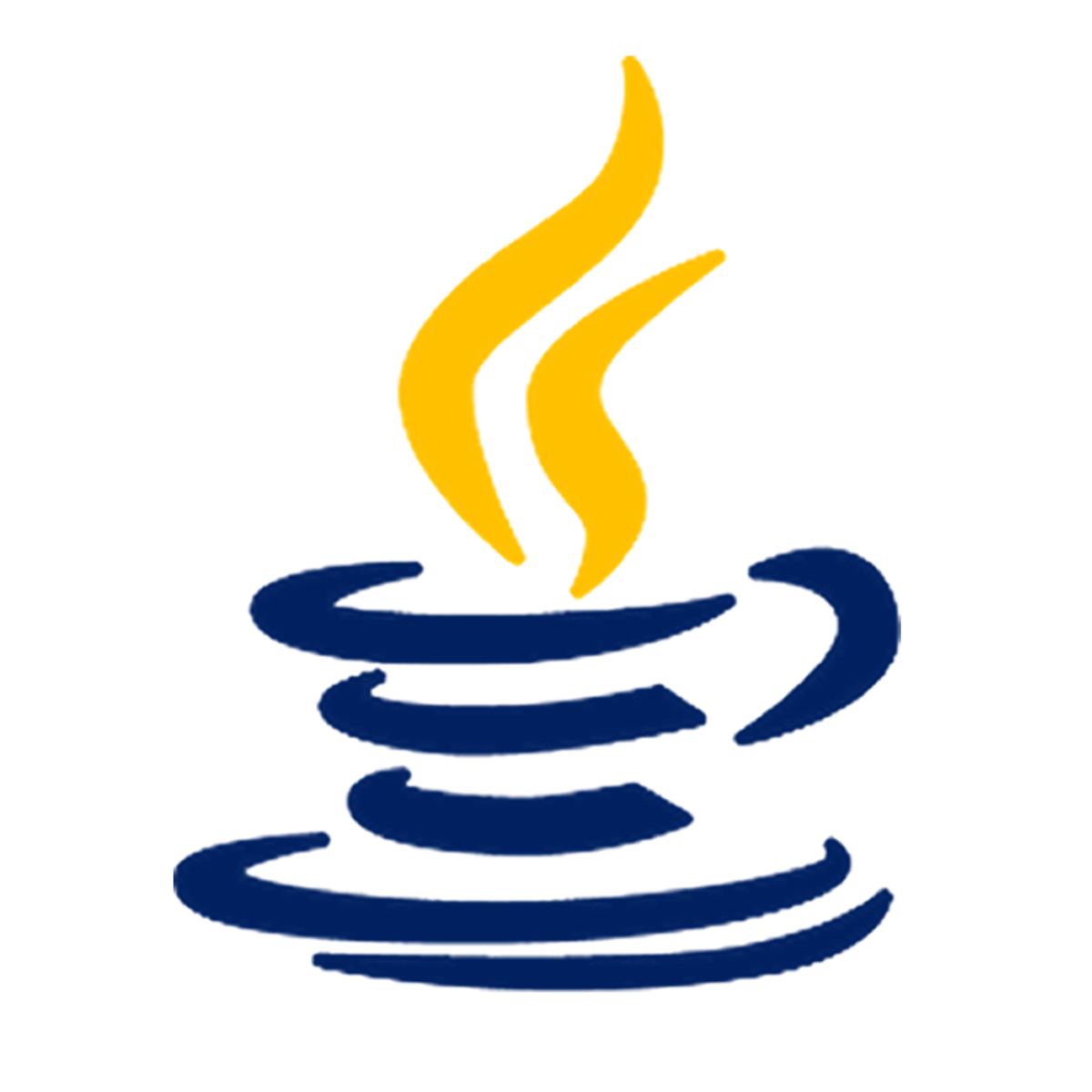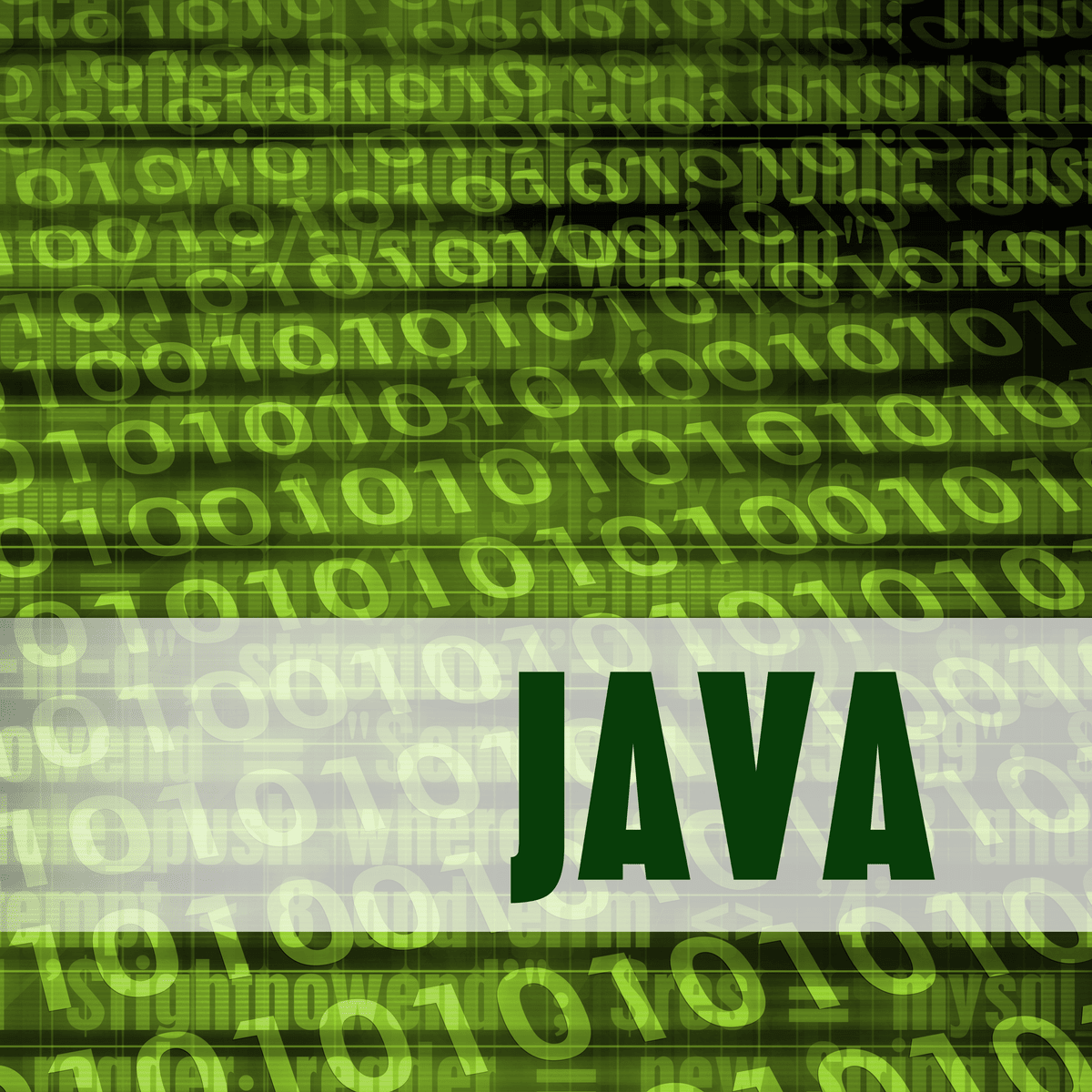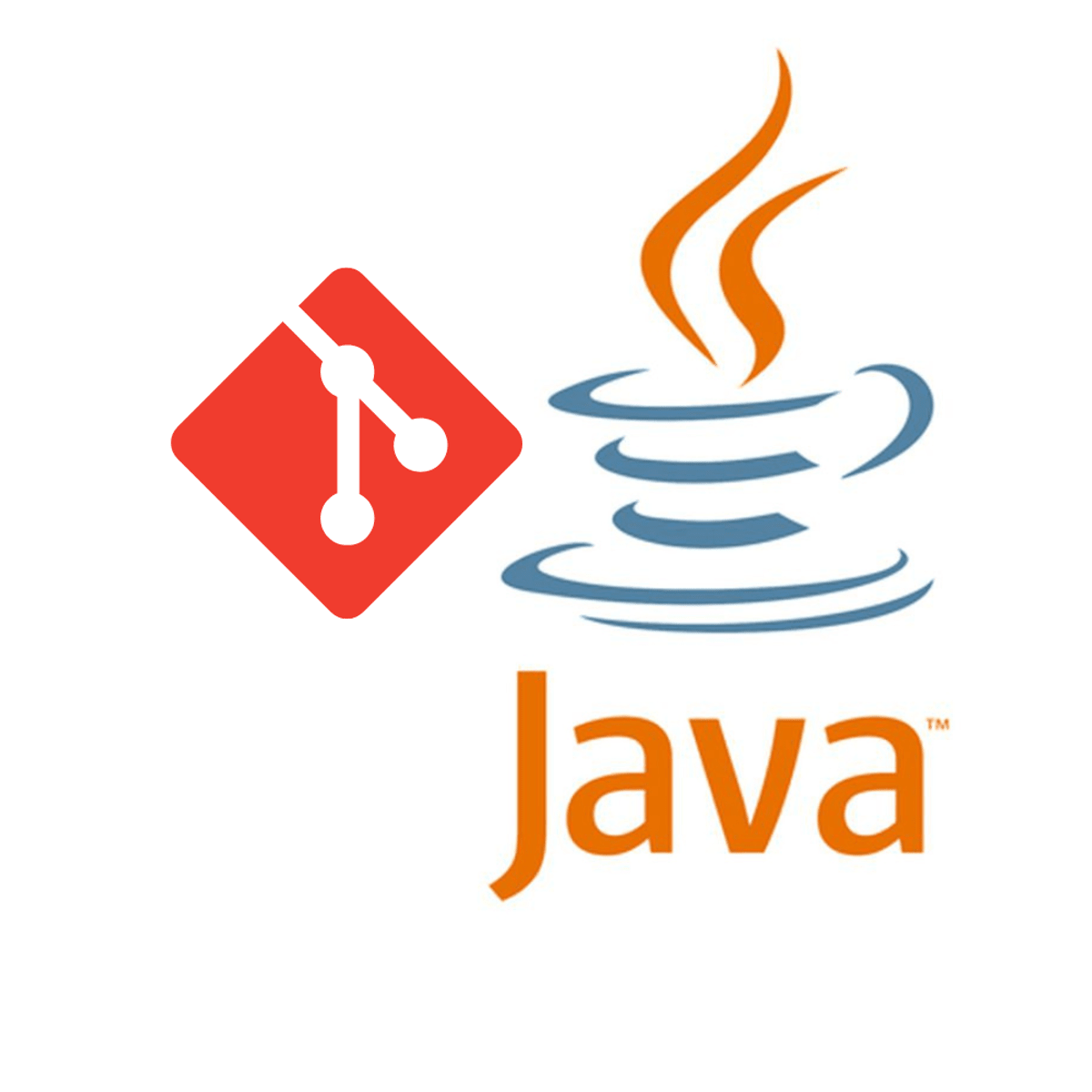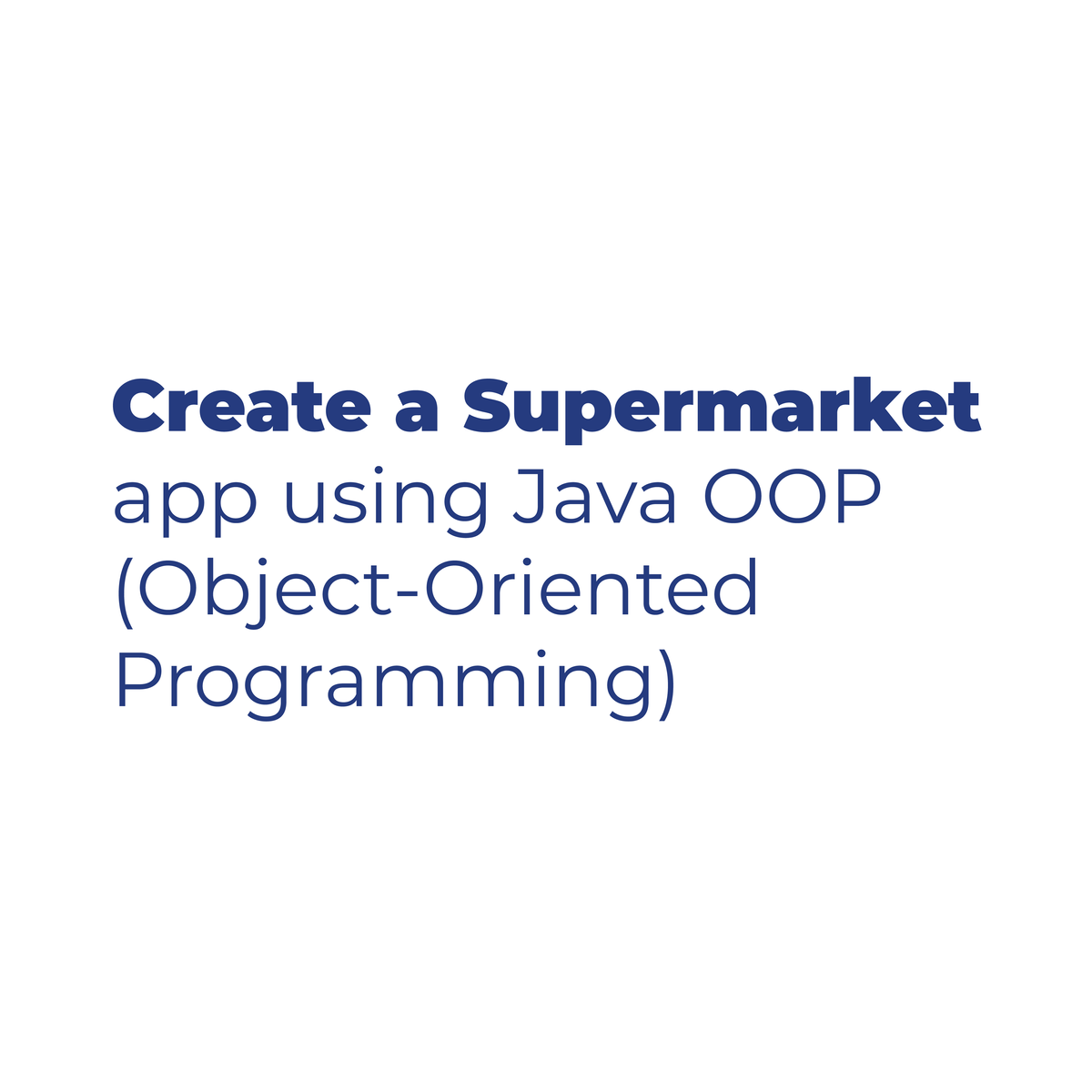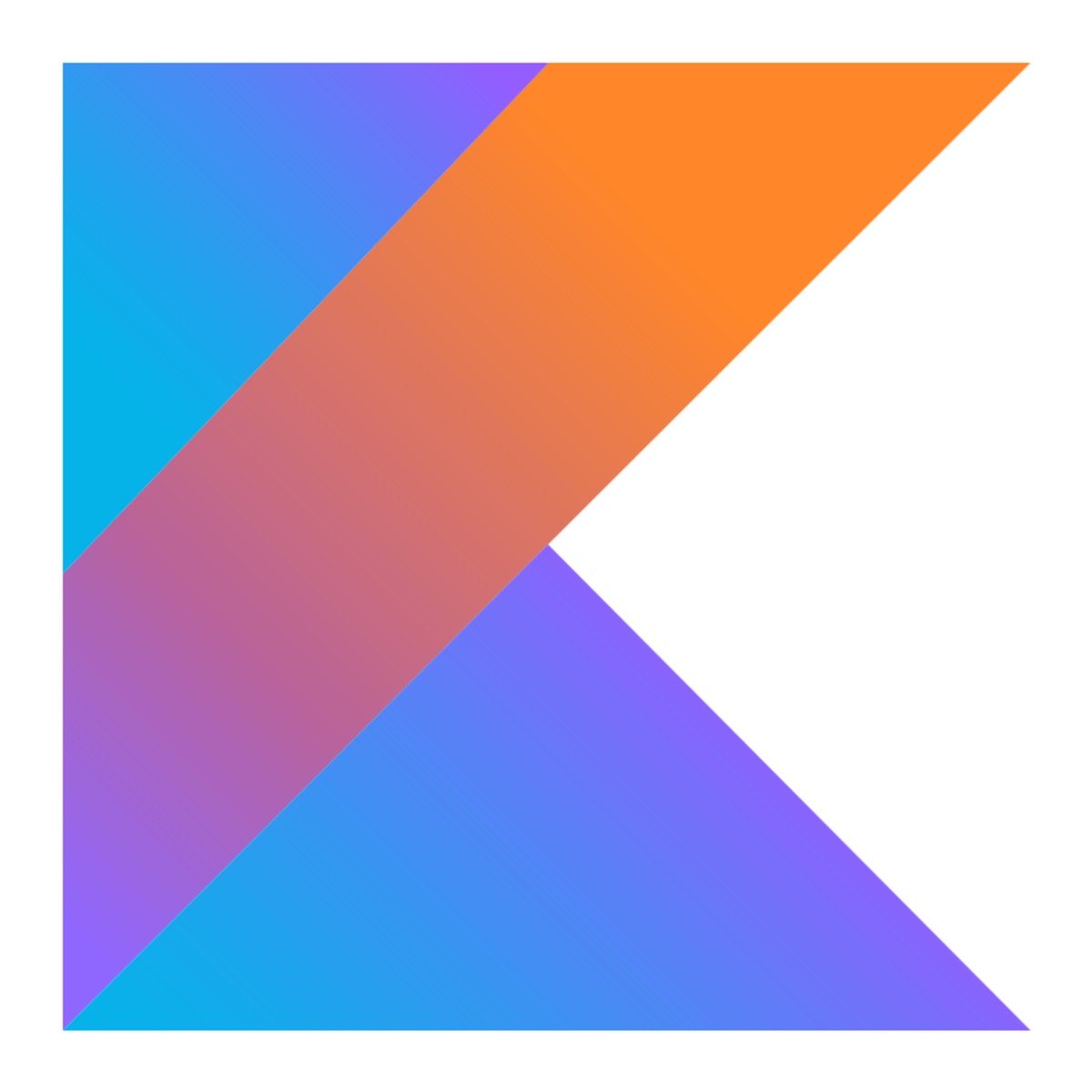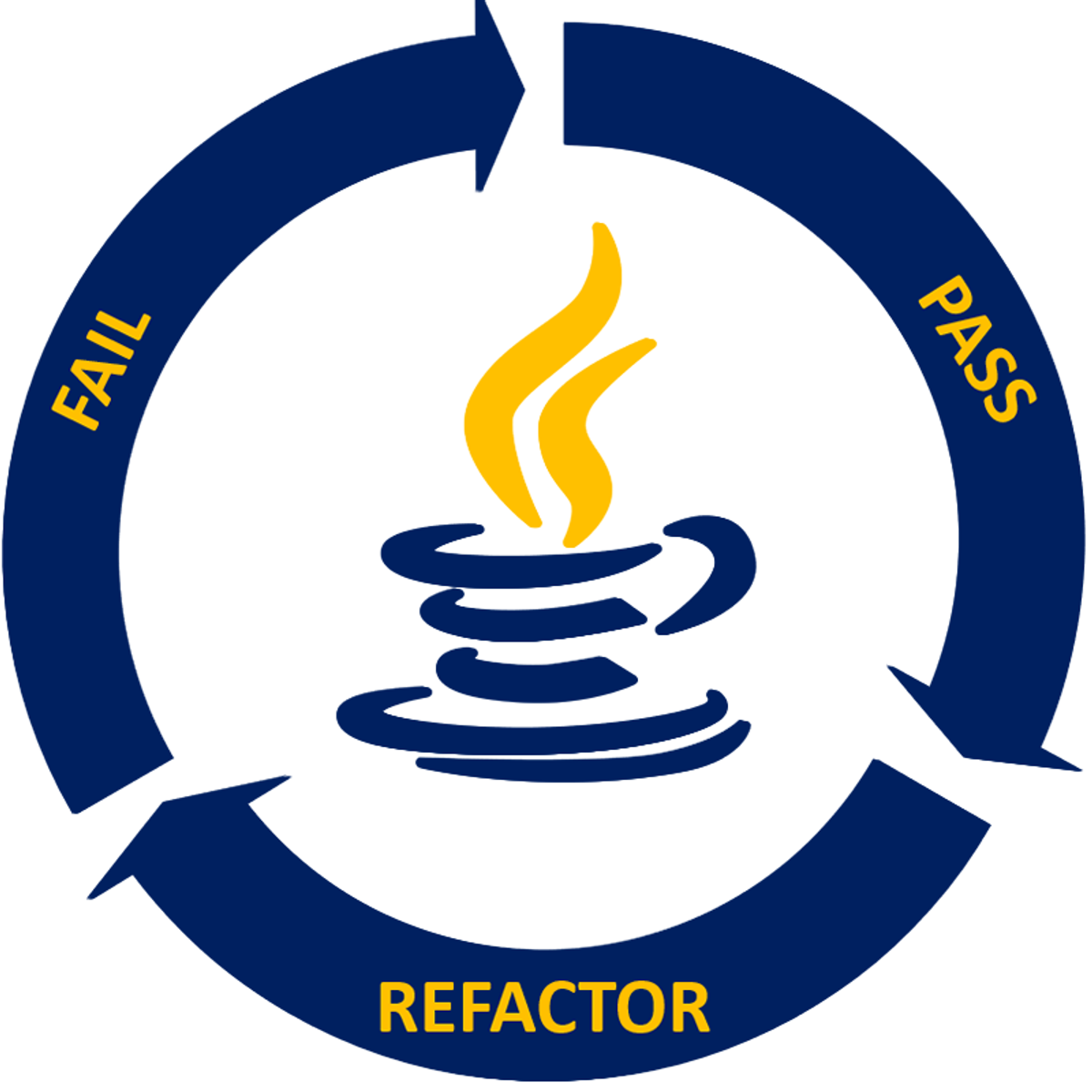Java
Exploring the World of Java: A Comprehensive Guide
Java is a high-level, versatile, and object-oriented programming language initially developed by James Gosling at Sun Microsystems and released in 1995. It is designed with the "Write Once, Run Anywhere" (WORA) philosophy, meaning that Java code compiled on one platform can run on any other platform that supports Java without needing to be recompiled. This is achieved through the Java Virtual Machine (JVM), which interprets compiled Java bytecode. Java is widely used for a variety of applications, including enterprise-level systems, web applications, mobile app development (notably Android), and large-scale data processing.
Working with Java can be engaging due to its robust ecosystem, which includes a vast collection of libraries and frameworks that simplify complex development tasks. The language's strong emphasis on security and stability makes it a reliable choice for building critical applications, particularly in sectors like finance and healthcare. Furthermore, Java's continuous evolution, with regular updates introducing modern features, ensures it remains a relevant and powerful tool for developers tackling contemporary software challenges. The large and active global community also provides a wealth of resources and support for learners and seasoned professionals alike.
Java in Computing History
Understanding Java's journey provides valuable context for its current standing and capabilities in the software development landscape. Its evolution reflects broader trends in computing and offers insights into its design principles.
The Dawn of Java: Early 1990s and Design Aspirations
Java's story began in June 1991, when James Gosling, Mike Sheridan, and Patrick Naughton, a team at Sun Microsystems then known as the "Green Team," initiated a project to create a new programming language. The initial ambition was to develop a language for digital devices like set-top boxes and interactive televisions. The language was first called "Oak," reportedly after an oak tree outside Gosling's office, and later "Greentalk" with a .gt file extension, before being famously renamed Java, inspired by Java coffee.
The core design goal was to create a language that was simpler and more robust than C++, which was considered but rejected for the project due to reasons like memory management complexities. Gosling aimed for a C/C++-style syntax to make it familiar to existing programmers, but with enhanced features like automatic memory management (garbage collection) and platform independence. This led to the "Write Once, Run Anywhere" (WORA) principle, a cornerstone of Java's philosophy.
Sun Microsystems released the first public implementation, Java 1.0, on January 23, 1996. It promised a no-cost runtime environment on popular platforms, which significantly contributed to its rapid adoption. TIME Magazine even named it one of the Ten Best Products of 1995.
Java's Ripple Effect: Influence on Subsequent Languages
Java's design and features have had a notable influence on many programming languages that emerged after it. Its popularization of object-oriented programming (OOP) as a mainstream paradigm significantly shaped how software was designed and structured. While concepts like OOP, virtual machines, and garbage collection existed in earlier languages like Smalltalk and Eiffel, Java brought them to a much wider audience.
The Java Virtual Machine (JVM) itself became a platform for other languages. Languages like Scala, Groovy, Kotlin, and Clojure were designed to compile to Java bytecode, allowing them to leverage the JVM's mature ecosystem, performance optimizations, and vast library landscape. This interoperability, where libraries from one JVM language can often be used by another, showcased a powerful new dimension in software development.
Furthermore, C#, developed by Microsoft, shares many syntactic similarities with Java and adopted concepts like a managed runtime environment (the Common Language Runtime, or CLR, analogous to the JVM) and garbage collection. Many modern languages have also incorporated ideas that Java helped popularize, such as its approach to exception handling and its extensive use of Application Programming Interfaces (APIs) for various functionalities. Java's model of a static type system based on method signatures also made it particularly well-suited for Integrated Development Environments (IDEs), influencing the development of powerful IDE features for other statically-typed languages.
Key Milestones: JDK Releases and JVM Enhancements
Java's evolution has been marked by a series of significant releases of the Java Development Kit (JDK) and continuous improvements to the Java Virtual Machine (JVM). The first stable version, JDK 1.0.2, was released in 1996. JDK 1.1, released in February 1997, brought major additions like the AWT event model retooling, inner classes, JavaBeans, JDBC for database connectivity, and Remote Method Invocation (RMI).
A pivotal release was J2SE 1.2 in December 1998, later retrospectively branded Java 2. This version tripled the platform's size and introduced features like the Swing GUI toolkit for richer graphical user interfaces, the Collections Framework for better data structure management, and the Just-In-Time (JIT) compiler for performance improvements. J2SE 1.3 (May 2000) notably included the HotSpot JVM, which offered significant performance enhancements. J2SE 1.4 brought features like regular expressions and New I/O (NIO).
Java 5 (J2SE 5.0), released in 2004, was another landmark, introducing generics, annotations, enums, and the enhanced for-loop, significantly improving code safety and expressiveness. Java 6 focused on performance optimizations and GUI improvements. Oracle acquired Sun Microsystems in 2010 and took over Java's development, eventually moving to a faster, six-month release cycle after Java 9 (released in 2017). This new cadence aimed to deliver features and improvements more rapidly. More recent Long-Term Support (LTS) versions like Java 11, Java 17, and Java 21 continue to provide stability and new capabilities for enterprise users. Throughout this journey, the JVM has seen numerous improvements, including advanced garbage collection algorithms, performance optimizations, and better support for dynamic languages.
Navigating the Tides: Java's Relevance in a Changing Tech Landscape
While Java has been a dominant force for decades, its journey hasn't been without challenges. The rise of newer languages like Python, Go, and Kotlin has introduced more competition, with these languages offering advantages in specific areas such as ease of use, conciseness, or specialized performance characteristics. Some have noted a gradual decline in Java's usage growth compared to these rapidly ascending languages, particularly in areas like AI and machine learning where Python has a strong foothold. There was a period in the 2000s when some observers questioned if newer languages would supplant Java.
However, Java has demonstrated remarkable resilience and adaptability. It remains a top choice for enterprise-level applications, with over 90% of Fortune 500 companies reportedly using it. Its robust ecosystem, security features, and the "Write Once, Run Anywhere" philosophy continue to be major draws. Java has successfully found new relevance in modern technological trends such as cloud computing, big data processing, and the Internet of Things (IoT). Frameworks like Spring Boot, Quarkus, and MicroProfile have made Java a strong contender for building cloud-native applications and microservices.
The consistent release of new Java versions with modern features, performance enhancements through projects like GraalVM, and efforts to improve concurrency with Project Loom demonstrate a commitment to keeping the language contemporary. While the learning focus for some developers might be shifting towards AI-specific tools, Java's foundational role in backend systems and its large, mature user base ensure its continued importance. Experts predict a stable or even growing user base for Java in the coming years, especially given its critical role in cloud infrastructure and enterprise software.
These courses can help build a foundation in Java's history and its enduring principles.
These books delve into the specifics of the Java language and its effective use, reflecting its evolution.
Core Java Concepts and Ecosystem
To truly understand Java, one must grasp its fundamental concepts and the rich ecosystem that surrounds it. This knowledge is crucial for anyone aspiring to become proficient in Java development, whether for building simple applications or complex enterprise systems.
Syntax Fundamentals and Programming Paradigms
Java's syntax is largely influenced by C and C++, which often makes it feel familiar to programmers coming from those backgrounds. However, unlike C++, which supports multiple programming paradigms more broadly, Java was designed almost exclusively as an object-oriented programming (OOP) language. This means that in Java, virtually everything is an object, and all code resides within classes. The only exceptions are the primitive data types (like integers, floating-point numbers, booleans, and characters), which are not objects primarily for performance reasons.
The core principles of OOP—encapsulation, inheritance, and polymorphism—are central to Java programming. Encapsulation involves bundling data (attributes) and methods (functions) that operate on the data within a single unit, the class, and restricting direct access to some of an object's components. Inheritance allows new classes to inherit properties and methods from existing classes, promoting code reuse and creating a hierarchy of classes. Polymorphism (literally "many forms") allows objects of different classes to respond to the same message (method call) in different ways, leading to more flexible and extensible code.
While Java is fundamentally object-oriented, recent versions have incorporated features that support other programming paradigms, notably functional programming. The introduction of lambda expressions and the Stream API in Java 8, for example, allows developers to write more concise and expressive code for certain tasks, particularly when dealing with collections of data. Despite these additions, the object-oriented structure remains the bedrock of Java application design. Java's type system is static and strong, meaning types are checked at compile-time, which helps in catching errors early.
To get started with Java syntax and OOP principles, these courses offer excellent introductions.
For a deeper dive into Java's object-oriented nature, "Thinking in Java" is a well-regarded text.
JVM Architecture and Memory Management
The Java Virtual Machine (JVM) is the cornerstone of Java's "Write Once, Run Anywhere" capability. It's an abstract computing machine that provides a runtime environment in which Java bytecode can be executed. When Java code is compiled, it's not turned into native machine code for a specific processor; instead, it's compiled into an intermediate format called bytecode (stored in .class files). The JVM then interprets this bytecode or, more commonly, uses a Just-In-Time (JIT) compiler to translate the bytecode into native machine code at runtime for improved performance.
The JVM architecture includes several key components. The Class Loader is responsible for loading class files into memory, verifying their integrity, and preparing them for execution. The Runtime Data Areas are memory regions used by the JVM during program execution, including the Heap (where objects are allocated), the Method Area (storing class structures, method data, and constant pool), JVM Stacks (one per thread, storing frames for method invocations), PC Registers (program counters for each thread), and Native Method Stacks (for native code). The Execution Engine contains the interpreter and the JIT compiler, which execute the bytecode.
A crucial feature of the JVM is automatic memory management, primarily through garbage collection. Developers do not need to manually allocate and deallocate memory as in languages like C++. The garbage collector automatically reclaims memory occupied by objects that are no longer referenced by the application, helping to prevent memory leaks and simplifying development. The JVM has seen significant improvements in garbage collection algorithms over the years, offering various collectors (like G1, Shenandoah, ZGC) designed for different performance goals, such as low pause times or high throughput. Understanding JVM internals, including memory management and garbage collection, can be beneficial for optimizing the performance of Java applications, especially for large-scale or resource-intensive systems. The JVM specification is developed under the Java Community Process (JCP).
These courses provide insights into how Java manages data and algorithms, which is closely tied to JVM operations.
Standard Libraries vs. Third-Party Frameworks
Java's power and versatility stem significantly from its extensive set of standard libraries and a vibrant ecosystem of third-party frameworks. The Java Standard Edition (Java SE) comes with a rich collection of Application Programming Interfaces (APIs), collectively known as the Java Class Library. These libraries provide a wide array of built-in functionalities, covering areas such as input/output operations (java.io, java.nio), networking (java.net), data structures (Collections Framework in java.util), concurrency utilities (java.util.concurrent), graphical user interface (GUI) development (Swing and JavaFX), database connectivity (JDBC), and much more. These standard libraries ensure that developers have a robust set of tools available out-of-the-box for common programming tasks, promoting consistency and portability across Java applications.
While the standard libraries are comprehensive, the Java ecosystem is further enriched by a vast number of third-party frameworks and libraries. Frameworks provide a structured way to build applications by offering pre-written code that developers can extend and customize. They often enforce a particular architectural pattern (like Model-View-Controller) and handle much of the boilerplate code, allowing developers to focus on the application's specific business logic. Prominent examples include the Spring Framework (and Spring Boot), which is widely used for enterprise application development and microservices; Hibernate, an Object-Relational Mapping (ORM) tool for database interaction; and Apache Struts (though less common in new projects) for web applications. There are also numerous specialized libraries for tasks like JSON processing (e.g., Jackson, Gson), logging (e.g., Log4j, SLF4j), unit testing (e.g., JUnit, TestNG), and much more.
The choice between using standard libraries and third-party frameworks often depends on the project's requirements, complexity, and scale. Standard libraries are excellent for fundamental tasks and when minimizing external dependencies is crucial. Third-party frameworks, on the other hand, can significantly accelerate development, provide robust solutions for complex problems, and promote best practices, but they also introduce dependencies and a learning curve. The availability of such a rich ecosystem is a major strength of Java, offering developers a wide range of tools to build sophisticated applications efficiently.
These courses help in understanding how to build applications using Java's libraries and popular frameworks.
Books like "Java Persistence with Hibernate" explore powerful third-party frameworks.
Build Tools (Maven, Gradle) and IDE Ecosystems
Efficient Java development relies heavily on robust build automation tools and sophisticated Integrated Development Environments (IDEs). Build tools automate the process of compiling source code, managing dependencies, running tests, packaging the application (e.g., into JAR or WAR files), and deploying it. Two of the most popular build tools in the Java ecosystem are Apache Maven and Gradle.
Maven uses a Project Object Model (POM), an XML file (pom.xml), to define project properties, dependencies, and build configurations. It follows a convention-over-configuration approach, meaning it has standard project layouts and build lifecycles, which simplifies setup for common project types. Maven's dependency management system automatically downloads required libraries from central repositories (like Maven Central) and manages transitive dependencies. Gradle, on the other hand, uses a Groovy-based or Kotlin-based Domain Specific Language (DSL) for its build scripts, offering more flexibility and often better performance, especially for large, complex projects. Gradle also features an incremental build system, which can significantly speed up build times by only processing tasks whose inputs have changed.
The IDE ecosystem for Java is mature and powerful, providing developers with tools that enhance productivity. Leading Java IDEs include IntelliJ IDEA, Eclipse, and NetBeans. These IDEs offer features like intelligent code completion, advanced debugging tools, refactoring capabilities, integrated version control (e.g., Git), support for build tools like Maven and Gradle, and plugins for various frameworks and technologies. For example, IntelliJ IDEA is highly regarded for its strong code analysis and ergonomic design. Eclipse has a long history and a vast plugin ecosystem, making it highly customizable. NetBeans also provides a comprehensive set of features, particularly for developing applications with Java SE and Java EE technologies. The choice of IDE often comes down to personal preference and specific project needs, but all major Java IDEs provide a rich environment for writing, testing, and deploying Java applications. Many online courses and tutorials also provide guidance on setting up and using these IDEs effectively.
These courses provide practical experience with Java development environments and tools.
Formal Education Pathways
For those seeking a structured approach to learning Java and related computer science principles, formal education offers well-defined pathways. Universities and other academic institutions often incorporate Java into their curricula due to its widespread use in the industry and its suitability for teaching core programming concepts.
Java in Computer Science Curricula
Java is a staple in many computer science programs around the world. Its object-oriented nature makes it an excellent language for teaching fundamental OOP concepts such as classes, objects, inheritance, polymorphism, and encapsulation. Introductory programming courses often use Java because its syntax, while comprehensive, is generally considered more approachable for beginners than languages like C++. Its strong typing and compile-time error checking also help students develop good programming habits early on.
Beyond introductory courses, Java is frequently used in more advanced subjects like data structures and algorithms, software engineering, and even operating systems courses to illustrate concepts like concurrency and networking. The vastness of Java's standard library and the availability of numerous educational resources, including textbooks and online tutorials, make it a convenient choice for educators. Furthermore, familiarity with Java provides students with a skill set that is directly applicable to a wide range of job opportunities upon graduation, given its prevalence in enterprise software development, Android app development, and big data technologies.
Many universities design their curriculum to ensure students not only learn the language syntax but also understand the underlying principles of software design and development using Java. This approach prepares students for real-world challenges where they might need to build scalable, maintainable, and robust applications. You can explore a wide variety of Computer Science courses on OpenCourser to find programs that feature Java.
These introductory Java courses are often similar in scope to what might be covered in early university-level programming modules.
Specialized University Courses
As students progress in their computer science education, they often encounter specialized courses that leverage Java for teaching advanced topics. For instance, courses on distributed systems frequently use Java due to its strong networking capabilities, support for concurrency, and frameworks that simplify the development of distributed applications. Students might learn to build systems involving remote procedure calls (RPC), message queues, and distributed consensus algorithms using Java technologies.
Android application development is another area where Java has traditionally been a core language, and many universities offer specialized courses or tracks focusing on mobile development using Java (though Kotlin is now also heavily emphasized). These courses cover the Android SDK, UI design, data persistence, and interaction with device hardware, all within the Java programming context. Furthermore, courses focusing on enterprise software development often delve deeply into Java Enterprise Edition (Java EE, now Jakarta EE) specifications and related frameworks like Spring, teaching students how to build scalable, secure, and transactional server-side applications. Other specialized areas might include courses on web services (RESTful and SOAP), database programming with JDBC and ORM frameworks, or even game development using Java-based engines.
These specialized courses allow students to apply their foundational Java knowledge to specific domains, preparing them for specialized roles in the industry. The hands-on projects and in-depth exploration of particular frameworks and technologies in these courses are invaluable for building practical expertise. You can often find courses on platforms like OpenCourser that mirror these specialized university offerings, allowing for focused learning in areas like Android Development or advanced backend systems.
These courses touch upon specialized areas like Android development and advanced Java features, akin to elective university modules.
For those interested in the enterprise side, books on Java web services and persistence are highly relevant.
Research Opportunities in JVM Optimization
For students pursuing graduate studies (Master's or PhD) or those with a keen interest in systems-level programming, the Java Virtual Machine (JVM) itself presents numerous research opportunities. The JVM is a complex piece of software responsible for executing Java bytecode, managing memory, and ensuring security. Optimizing its performance, efficiency, and capabilities is an ongoing area of research and development.
Research areas in JVM optimization can include:
- Garbage Collection (GC): Developing new GC algorithms or improving existing ones to reduce pause times, increase throughput, or better handle large heaps. This might involve research into concurrent and parallel GC, generational GC, or region-based memory management.
- Just-In-Time (JIT) Compilation: Enhancing JIT compilers to generate more efficient native code, reduce compilation overhead, or improve speculative optimizations. Research could focus on new compiler techniques, adaptive optimization strategies, or profile-guided optimizations.
- Runtime Performance: Investigating ways to improve the overall runtime performance of Java applications, such as optimizing synchronization primitives, improving thread scheduling, or reducing the overhead of JVM features like reflection or dynamic class loading.
- Memory Layout and Management: Researching more efficient object memory layouts, reducing memory footprint, or developing better strategies for off-heap memory management. Projects like Valhalla, which introduces value types, aim to address some of these aspects.
- Support for New Languages and Features: Extending the JVM to better support other programming languages or new language features (e.g., improved support for functional programming constructs or lightweight concurrency like Project Loom).
- Security Enhancements: Researching new security mechanisms within the JVM to protect against emerging threats or to provide finer-grained security controls.
While direct courses on JVM optimization research are rare at an introductory level, understanding advanced Java programming and concurrency is a prerequisite.
Certifications vs. Degree Programs
When considering formal pathways to a Java-related career, a common question arises: what is more valuable, a certification or a degree? Both have their merits and cater to different needs and career stages. A university degree in Computer Science or a related field typically provides a broad and deep theoretical foundation. It covers not just programming languages like Java, but also fundamental concepts such as algorithms, data structures, computer architecture, operating systems, software engineering principles, and often mathematics and theoretical computer science. This comprehensive education equips individuals with problem-solving skills and a deeper understanding of how computer systems work, which can be invaluable for tackling complex challenges and adapting to new technologies over a long career. Many employers, especially for entry-level roles or research-oriented positions, prefer candidates with a relevant bachelor's or master's degree.
Java certifications, on the other hand, such as those historically offered by Sun Microsystems and now by Oracle (e.g., Oracle Certified Associate - OCA, Oracle Certified Professional - OCP), focus specifically on validating proficiency in the Java language and related technologies. Certifications can be a good way for individuals to demonstrate concrete skills in Java, especially if they are transitioning from a different field, are self-taught, or want to specialize in a particular Java technology (like Java EE or specific frameworks). They can be quicker to obtain than a degree and can be a targeted way to upskill or prove expertise in a new version of Java or a specific Java ecosystem component. For experienced professionals, certifications can also serve as a means to formalize their existing knowledge and stay current with the latest advancements.
Ultimately, the "better" option depends on individual circumstances and career goals. A degree often provides a stronger long-term foundation, while certifications can offer more immediate, skill-specific validation. In many cases, a combination of both—a relevant degree supplemented by targeted certifications—can be a powerful credential. For those exploring career pivots, certifications coupled with a strong portfolio of projects can be a very effective way to enter the Java development field. Many online courses on platforms like OpenCourser offer preparation for Java certifications or cover material that aligns with certification objectives. You can often find these by searching for specific certifications like Oracle Certified Associate, Java Programmer.
These courses can help prepare for Java certification exams or provide knowledge equivalent to certification levels.
For those looking at degrees, a solid understanding of the language is fundamental, as covered in comprehensive reference books.
Self-Directed Learning Strategies
For individuals charting their own path into Java development, particularly those pivoting careers or preferring a self-taught approach, a structured yet flexible learning strategy is key. The wealth of online resources available today makes self-directed learning more accessible than ever, but it requires discipline and a clear plan to be effective.
Curriculum Design for Independent Study
Designing your own Java curriculum requires careful planning. Start by defining clear learning objectives: what do you want to achieve with Java? Are you aiming for web development, Android app creation, or backend enterprise systems? Your goals will dictate the topics to prioritize. A typical foundational curriculum should begin with Java core concepts: syntax, data types, control flow statements, and object-oriented programming (OOP) principles (classes, objects, inheritance, polymorphism, encapsulation). Understanding these basics is paramount before moving to more advanced topics.
Next, delve into essential Java APIs and libraries, such as the Collections Framework, I/O streams, and basic networking. Concurrency and multithreading are also important concepts in Java, so allocate time to understand threads, synchronization, and the `java.util.concurrent` package. As you progress, explore build tools like Maven or Gradle, and familiarize yourself with a popular IDE such as IntelliJ IDEA, Eclipse, or VS Code. Depending on your goals, you might then specialize. For web development, learn about servlets, JSPs, and frameworks like Spring (especially Spring Boot). For Android development, focus on the Android SDK. For backend systems, dive deeper into Spring, Hibernate, and database interaction (JDBC).
Integrate a mix of learning resources: online courses, interactive tutorials, books, and official documentation. OpenCourser is an excellent platform to discover a vast array of online courses from various providers, allowing you to compare syllabi and choose what best fits your learning style and goals. Supplement theoretical learning with practical coding exercises and small projects from the very beginning. Regularly review and revise your curriculum as you learn more and as your interests potentially shift. Setting milestones and tracking your progress can also help maintain motivation.
These courses offer a structured approach to learning core Java, suitable for building a self-study curriculum.
A good reference book is invaluable for self-study.
Open-Source Contribution Pathways
Contributing to open-source projects is an excellent way for self-taught developers and career pivoters to gain practical experience, build a portfolio, and network within the Java community. It allows you to work on real-world codebases, collaborate with experienced developers, and understand software development best practices in a tangible way. Many Java-based projects, from small libraries to large frameworks and applications, welcome contributions from the community.
To get started, identify projects that align with your interests and current skill level. Platforms like GitHub host countless open-source Java projects. Look for projects with "good first issue" or "help wanted" tags, which are often designated for newcomers. Before contributing code, take time to understand the project: read its documentation, browse the existing codebase, and familiarize yourself with its contribution guidelines and coding standards. Start with small contributions, such as fixing minor bugs, improving documentation, or writing unit tests. This helps you get acquainted with the project's workflow and build credibility within the community.
Engage with the project's maintainers and other contributors through issue trackers, mailing lists, or forums. Don't be afraid to ask questions, but also demonstrate that you've done your research. As you gain experience and confidence, you can take on more complex tasks and features. Contributing to open source not only enhances your technical skills but also provides visible proof of your abilities to potential employers. It demonstrates initiative, a willingness to learn, and the ability to collaborate, all of which are highly valued in the software industry. You can often discover projects that use technologies you've learned about through programming courses.
Understanding version control is crucial for open-source contributions.
Familiarity with common design patterns is also beneficial when working on established codebases.
Project-Based Learning Examples
Project-based learning is arguably one of the most effective strategies for mastering Java, especially for self-directed learners. Building tangible projects helps solidify theoretical knowledge, develop problem-solving skills, and create a portfolio to showcase to potential employers. Start with small, manageable projects and gradually increase complexity as your skills grow.
Here are some project ideas suitable for different stages of learning Java:
-
Beginner Level:
- Simple Calculator: Implement basic arithmetic operations. This helps with understanding variables, methods, and basic control flow.
- To-Do List Application: Manage tasks with functionalities like adding, deleting, and marking tasks as complete. This introduces concepts like data structures (e.g., ArrayLists) and basic user input/output.
- Number Guessing Game: A console-based game where the user tries to guess a randomly generated number. Good for practicing loops and conditional statements.
-
Intermediate Level:
- Basic Library Management System: Manage books, members, and borrowing records. This can involve file I/O or a simple database connection (JDBC) and more complex object-oriented design.
- Simple Web Scraper: Extract data from a website using libraries like Jsoup. This introduces networking concepts and HTML parsing.
- Chat Application (Console or Basic GUI): Allow users to send messages to each other over a network. This delves into networking (sockets) and concurrency.
-
Advanced Level:
- E-commerce Platform (Simplified): Develop a web application with product listings, a shopping cart, and user accounts, possibly using Spring Boot and a database.
- Android Mobile Game: Create a simple game for Android devices, applying your Java and Android SDK knowledge.
- Personal Finance Tracker: A desktop or web application to track income and expenses, possibly with charting features.
These courses are explicitly project-based, offering excellent hands-on experience.
For those interested in project-based learning, "Head First Java" is known for its engaging and practical approach.
Balancing Java with Complementary Technologies
While becoming proficient in Java is a significant achievement, modern software development often requires knowledge of a broader set of technologies that complement Java. Depending on your career aspirations, balancing your Java learning with these complementary skills can make you a more versatile and marketable developer.
For backend and enterprise development, understanding databases is crucial. This includes relational databases like MySQL, PostgreSQL, or Oracle, and knowledge of SQL (Structured Query Language). Familiarity with NoSQL databases like MongoDB or Cassandra can also be beneficial. Learning about web servers and application servers such as Tomcat, Jetty, or WildFly is important if you're building web applications. Understanding front-end technologies like HTML, CSS, and JavaScript, along with popular JavaScript frameworks/libraries (e.g., React, Angular, Vue.js), is essential for full-stack Java developers. [pv6zru]
DevOps practices and tools are increasingly important. This includes version control systems (primarily Git), continuous integration/continuous delivery (CI/CD) pipelines (using tools like Jenkins, GitLab CI, or GitHub Actions), and containerization technologies like Docker and orchestration tools like Kubernetes. If you're interested in cloud computing, gaining familiarity with major cloud platforms (AWS, Azure, Google Cloud) and their services relevant to Java applications (e.g., serverless functions, managed databases, messaging queues) is highly valuable. For those venturing into big data, frameworks like Apache Spark and Hadoop, which are often Java-based, are key technologies to learn. In the realm of Android development, while Java is foundational, learning Kotlin is now often recommended or required, as it has become Google's preferred language for Android.
The key is not to try to learn everything at once. After building a solid foundation in Java, strategically choose complementary technologies based on your chosen specialization and the demands of the job market in that area. Online courses and learning paths on platforms like OpenCourser can help you identify and learn these related skills in a structured manner. For example, after mastering Java, you might search for "Spring Boot and React" courses if full-stack development is your goal.
These courses introduce technologies often used alongside Java.
Java Career Progression
A career in Java development offers a diverse range of opportunities and a clear path for growth. As a language that has been a cornerstone of enterprise software, Android development, and more recently, cloud and big data solutions, Java skills remain in high demand across various industries. Understanding the typical career trajectory can help aspiring and current Java professionals plan their development and make informed decisions.
Entry-Level Roles: Starting Your Java Journey
For individuals starting their careers in Java, typical entry-level roles include Junior Java Developer, Associate Software Engineer, or sometimes QA Engineer with a focus on Java-based test automation. In these positions, the primary responsibilities often involve writing and debugging code under the supervision of senior developers, participating in code reviews, developing unit tests, and contributing to smaller features or bug fixes within larger projects. This initial phase is crucial for gaining practical experience with Java syntax, core libraries, common frameworks (like Spring for backend roles or the Android SDK for mobile roles), version control systems (like Git), and development methodologies (such as Agile or Scrum).
Employers hiring for entry-level Java roles usually look for a solid understanding of object-oriented programming principles, basic Java proficiency, and a willingness to learn. A bachelor's degree in Computer Science or a related field is often preferred, but a strong portfolio of personal projects, contributions to open-source projects, or relevant certifications can also make a candidate stand out, especially for those who are self-taught or transitioning from other fields. Soft skills like communication, teamwork, and problem-solving are also highly valued. The focus during this period should be on absorbing as much knowledge as possible, honing coding skills, and understanding the software development lifecycle in a professional setting. OpenCourser's Career Development resources can provide further guidance on landing that first role.
These courses are excellent for building the foundational skills needed for entry-level Java positions.
Mid-Career Specialization Paths
After gaining a few years of experience as a Java developer, professionals often have the opportunity to specialize in areas that align with their interests and market demand. Common specialization paths include:
- Backend Development: This is a very common path for Java developers, focusing on server-side logic, databases, APIs, and application architecture. Expertise in frameworks like Spring (especially Spring Boot, Spring MVC, Spring Security), Hibernate or JPA for database interaction, and building RESTful web services is crucial. Knowledge of microservices architecture, cloud platforms (AWS, Azure, GCP), and containerization (Docker, Kubernetes) is increasingly important.
- Android Development: While Kotlin is now prominent, many legacy Android applications are built with Java, and Java knowledge remains valuable. Developers in this area focus on building and maintaining applications for the Android operating system, using the Android SDK, Android Studio, and understanding mobile UI/UX principles and performance optimization. [hjq076]
- Full-Stack Development: Java developers can expand their skills to become full-stack developers by learning front-end technologies (HTML, CSS, JavaScript, and frameworks like React, Angular, or Vue.js) in addition to their backend Java expertise. This allows them to work on all aspects of an application. [38, pv6zru]
- Big Data Engineering: Java is a core language for many big data technologies like Apache Hadoop, Apache Spark, and Apache Kafka. Developers specializing in this area work on building systems for processing, storing, and analyzing massive datasets.
- Enterprise Application Development: This involves working on large-scale, complex business applications, often using Jakarta EE (formerly Java EE) technologies, enterprise integration patterns, and robust architectural designs.
- DevOps Engineering: While not strictly a Java development role, Java developers with an interest in infrastructure and automation can transition into DevOps, focusing on CI/CD pipelines, infrastructure as code, and cloud operations for Java applications.
These courses cater to developers looking to specialize, particularly in backend and cloud technologies.
A classic book on design patterns is essential for mid-career developers aiming to improve their software architecture skills.
Leadership and Architectural Roles
With significant experience and a proven track record, Java professionals can advance into leadership and architectural roles. These positions require not only deep technical expertise in Java and related technologies but also strong soft skills, strategic thinking, and the ability to guide teams and projects.
Common leadership roles include:
- Senior Java Developer/Lead Developer: Oversees a development team, mentors junior developers, makes key technical decisions for specific modules or features, and is responsible for code quality and timely delivery. They are still heavily involved in coding and complex problem-solving.
- Tech Lead: Similar to a Lead Developer but may have a broader technical oversight across multiple components or even small projects. They often bridge the gap between the development team and project management.
- Software Architect/Java Architect: Responsible for designing the overall architecture of Java-based systems. This involves making high-level design choices, selecting technologies and frameworks, ensuring scalability, performance, and security, and defining coding standards and best practices. They need a broad understanding of various architectural patterns (e.g., microservices, event-driven architecture) and technologies.
- Engineering Manager/Development Manager: Focuses more on people management, project planning, resource allocation, and team development, although a strong technical background in Java is usually essential to effectively manage Java development teams. [mulege]
For those aspiring to leadership, courses on software architecture and advanced design patterns are invaluable.
Understanding concurrency in depth is crucial for architects designing high-performance systems.
Freelancing and Consulting Opportunities
Experienced Java developers also have viable opportunities in freelancing and consulting. As a freelancer, a Java developer can take on short-term or long-term projects for various clients, offering services such as application development, system maintenance, feature enhancement, or specialized problem-solving. Freelancing provides flexibility in terms of work hours and project choice but also requires strong self-management, marketing, and client communication skills.
Java consultants typically offer more specialized expertise, advising businesses on Java-related strategies, architecture, performance optimization, or adoption of new Java technologies. Consultants might work independently or through consulting firms. This path often requires a significant depth of experience in a particular niche (e.g., enterprise integration, cloud migration for Java applications, performance tuning for high-traffic systems) and the ability to quickly understand diverse business needs and translate them into technical solutions. A strong professional network and a portfolio of successful projects are crucial for both freelancers and consultants.
The rise of remote work has further expanded opportunities for freelance Java developers, allowing them to work with clients globally. Platforms connecting freelancers with projects can be a starting point, but building a reputation through quality work and networking is key to sustained success. For those considering this path, continuously updating skills in the latest Java versions and emerging frameworks, as well as business acumen, will be beneficial. The skills learned in courses focusing on modern Java development, such as Java microservices or cloud deployment, are highly sought after in the freelance market.
These courses provide skills in high-demand areas often sought by freelance clients.
Industry Adoption Trends
Java has maintained a significant presence across various sectors of the tech industry for decades. Understanding its adoption trends in different environments and its application in emerging domains can help individuals and organizations make informed decisions about leveraging Java technology.
Java in Enterprise vs. Startup Environments
Java has long been a dominant force in enterprise environments. Large corporations often favor Java for its robustness, scalability, security features, and the extensive ecosystem of mature tools and frameworks like Spring and Jakarta EE. The language's platform independence ("Write Once, Run Anywhere") and backward compatibility are also crucial for enterprises that manage large, long-lived systems and require stability. Many mission-critical applications in finance, insurance, healthcare, and telecommunications are built using Java. The availability of a large pool of experienced Java developers further solidifies its position in the enterprise world.
In startup environments, the choice of technology stack can be more varied. While some startups do choose Java, especially for building scalable backend systems or when the founding team has strong Java expertise, other languages like Python, Ruby, Node.js (JavaScript), or Go are also popular. These languages are sometimes perceived as enabling faster prototyping and iteration due to their dynamic nature or more concise syntax. However, with the advent of frameworks like Spring Boot and Quarkus, which simplify development and improve startup times, Java is becoming increasingly attractive for startups as well, particularly those aiming for rapid scaling and robust architectures from the outset. The rise of microservices has also made Java a viable option for startups looking to build modular and resilient applications.
Ultimately, the decision often hinges on factors such as the specific product requirements, the existing skillset of the development team, time-to-market pressures, and long-term scalability and maintainability considerations. While enterprises value Java's stability and extensive ecosystem, startups might prioritize rapid development and flexibility, though modern Java frameworks are increasingly bridging this gap.
These courses cover technologies widely used in both enterprise and modern startup environments focusing on scalable backends.
Legacy System Maintenance and Modernization Demands
Given Java's long history and widespread adoption in enterprise systems, a significant amount of Java code forms the backbone of many organizations' IT infrastructure. This has created a substantial and ongoing demand for developers skilled in maintaining and modernizing these legacy Java applications. These systems, while often reliable, may have been built using older versions of Java or outdated frameworks and architectural patterns.
Maintenance of legacy Java systems involves tasks such as bug fixing, performance tuning, security patching, and ensuring compatibility with newer operating systems or hardware. Modernization, on the other hand, is a more strategic effort to update these systems to leverage newer technologies and architectural approaches. This can include migrating applications to newer Java versions, refactoring monolithic applications into microservices, moving applications to the cloud, integrating modern APIs, or updating user interfaces. The goal of modernization is often to improve agility, scalability, maintainability, and to enable new business capabilities.
The demand for Java developers with skills in both older and newer Java technologies is therefore robust. Companies often face challenges in finding developers who are willing and able to work on legacy code, but this area can offer stable employment and opportunities to make a significant impact by helping organizations preserve their investment in existing systems while adapting to future needs. Tools and strategies for modernizing Java applications, such as using facade patterns or incrementally decomposing monoliths, are important skills in this domain. Understanding Java's evolution, including features deprecated in newer versions and how to migrate away from them, is also key.
While no single course covers all aspects of legacy modernization, a strong foundation in core Java and newer frameworks is essential for such tasks.
Books on effective Java and performance tuning can be particularly useful when dealing with legacy systems.
Emerging Domains: IoT, Cloud-Native Java, and AI
Java continues to find new applications and adapt to emerging technological domains, demonstrating its versatility beyond traditional enterprise and web development. Three key areas where Java is making significant inroads are the Internet of Things (IoT), cloud-native architectures, and Artificial Intelligence (AI).
In the Internet of Things (IoT), Java's platform independence, robustness, and security features make it a suitable choice for developing applications that run on a wide variety of embedded devices and gateways. Java ME (Micro Edition) has historically targeted resource-constrained devices, and modern Java SE versions with modularity and smaller footprints are also applicable. Libraries and frameworks exist for IoT communication protocols (like MQTT, CoAP) and for building edge computing solutions. Java's large developer community and mature development tools also contribute to its adoption in the IoT space.
Cloud-native Java development has gained significant traction. This approach involves designing and building Java applications specifically for cloud environments, leveraging principles like microservices, containerization (using Docker), and orchestration (with Kubernetes). Frameworks such as Spring Boot, Quarkus, Micronaut, and Helidon are designed to create lightweight, fast-starting Java applications suitable for cloud deployments. Features in newer JDK versions, like improved container awareness and efforts towards smaller JVM footprints (e.g., with GraalVM native images), further enhance Java's suitability for cloud-native architectures.
In the realm of Artificial Intelligence (AI) and Machine Learning (ML), while Python is often the dominant language, Java also plays a significant role. Many large-scale big data processing frameworks essential for ML, like Apache Spark and Apache Hadoop, are written in or have strong Java APIs. Java offers several libraries and frameworks for ML, such as Deeplearning4j (DL4J), Weka, and connections to AI platforms. Its performance characteristics and scalability make it suitable for deploying ML models in enterprise environments, particularly when integrating with existing Java-based systems. The increasing use of AI tools by Java developers for tasks like code completion, refactoring, and error detection is also a notable trend, enhancing productivity.
These courses explore Java's application in modern, emerging domains.
Regional Market Variations in Java Demand
The demand for Java developers can exhibit regional variations based on several factors, including the concentration of specific industries, the maturity of the tech ecosystem, investment in technology, and educational focus. While Java enjoys widespread global popularity, some nuances exist.
In established tech hubs in North America (like Silicon Valley, Seattle, Toronto) and Europe (like London, Berlin, Amsterdam), there is consistent high demand for Java developers, particularly for enterprise software, financial services, and increasingly, cloud-based solutions. These regions often have a large base of companies that have historically relied on Java and continue to invest in Java-based systems. The startup scenes in these areas also contribute to Java demand, especially with modern frameworks like Spring Boot. According to one source, Indeed job listings in 2024 showed Java as the third most in-demand programming language in the United States.
In rapidly growing tech markets in Asia, such as India and parts of Southeast Asia, Java remains a very popular language. It's widely taught in universities and is a common skill for developers entering the workforce. These regions often serve as major outsourcing hubs for Java development, catering to global clients, and also have burgeoning domestic tech industries that utilize Java for mobile (Android) and enterprise applications. The TIOBE Index and other popularity rankings consistently show Java as a top language globally, reflecting this broad adoption.
Factors like government initiatives promoting specific technologies or local industry specializations (e.g., a region with a strong automotive industry might have more demand for embedded Java skills) can also influence regional demand. However, given Java's global footprint in critical sectors like finance, e-commerce, and mobile development, skilled Java developers generally find opportunities across most developed and developing economies. The rise of remote work has also somewhat democratized access to Java roles, allowing developers to work for companies in different regions without relocating. Information on specific regional variations can often be gleaned from local job boards and tech industry reports from those areas. For example, the U.S. Bureau of Labor Statistics provides occupational outlooks that, while not Java-specific, can indicate trends in software development roles which often involve Java.
Regardless of region, foundational Java skills are universally valuable.
Challenges in Modern Java Development
Despite Java's enduring popularity and continued evolution, developers and organizations working with Java in the modern era face certain challenges. Acknowledging these hurdles is important for making informed decisions and for navigating the complexities of contemporary software development.
Performance Trade-offs vs. Newer Languages
While the Java Virtual Machine (JVM) has seen significant performance improvements over the years, thanks to advancements in Just-In-Time (JIT) compilation, garbage collection, and other optimizations, Java applications can sometimes face performance challenges compared to languages designed with different trade-offs. One common point of discussion is startup time. Traditional Java applications can have slower startup times compared to natively compiled languages like Go or C++, or even some other JIT-compiled languages. This can be a concern in environments where rapid scaling or frequent restarts are common, such as serverless architectures or microservices.
Memory consumption is another area where Java can be more resource-intensive than some alternatives. The JVM itself requires a certain amount of memory, and object overhead can contribute to a larger memory footprint. While modern garbage collectors are highly efficient, they can still introduce pause times that might affect latency-sensitive applications. Newer languages like Rust, which offer memory safety without a garbage collector, or Go, with its lightweight goroutines and efficient concurrency model, are often cited as providing better raw performance or lower resource usage in specific scenarios.
However, it's important to note that Java's performance is often excellent for long-running, throughput-oriented enterprise applications once the JVM has "warmed up" and the JIT compiler has optimized critical code paths. Technologies like GraalVM, which allows for Ahead-Of-Time (AOT) compilation of Java code into native executables, aim to address startup time and memory footprint issues, though they come with their own trade-offs, such as potentially longer build times. The choice often depends on the specific application requirements, the nature of the workload, and the development team's expertise. A report by McKinsey, though not Java-specific, discusses the broader implications of developer velocity and software excellence, where performance is a key factor.
Understanding Java's performance characteristics is crucial for advanced development.
A deep understanding of Java's concurrency model can help mitigate performance bottlenecks.
For comparative insights, exploring other languages can be useful.
Addressing Technical Debt in Large Java Codebases
Given Java's long history in enterprise environments, many organizations manage large, mature Java codebases that have accumulated significant technical debt over time. Technical debt refers to the implied cost of rework caused by choosing an easy (limited) solution now instead of using a better approach that would take longer. In large Java systems, this can manifest as overly complex code, outdated libraries and frameworks, lack of sufficient test coverage, poor documentation, or architectural decisions that are no longer optimal.
Addressing technical debt in such codebases is a considerable challenge. It requires a dedicated effort and investment, which can be difficult to prioritize against new feature development. Refactoring large sections of code, migrating to newer Java versions or frameworks, or re-architecting parts of the system can be risky, time-consuming, and expensive. There's often a fear of breaking existing functionality, especially in mission-critical systems. Moreover, finding developers with the skills and willingness to work on older code or to undertake large-scale refactoring projects can be difficult.
Strategies for managing technical debt in Java projects include establishing a culture of code quality, regularly refactoring small parts of the codebase, investing in automated testing, gradually migrating to modern architectures (e.g., microservices), and making conscious decisions about when and how to pay down existing debt. Tools for static code analysis, code coverage, and dependency management can help identify and manage technical debt. While Java's backward compatibility is generally a strength, it can sometimes inadvertently allow older, less optimal code patterns to persist if not actively addressed.
Courses focusing on clean code, design patterns, and refactoring are essential for managing technical debt.
The Learning Curve for Advanced Java Features and Frameworks
While Java's core syntax can be relatively straightforward for beginners, mastering its advanced features and the vast ecosystem of frameworks can present a significant learning curve. Modern Java versions (Java 9 onwards) have introduced a plethora of new features such as modules (Project Jigsaw), records, sealed classes, pattern matching, virtual threads (Project Loom), and enhancements to functional programming constructs. While these features make the language more powerful and expressive, they also require developers to continuously learn and adapt.
Beyond the language itself, the Java ecosystem is rich with complex frameworks like Spring (with its many modules like Spring Boot, Spring Data, Spring Security), Hibernate, Kafka, and various cloud-native tools. Each of these frameworks has its own concepts, APIs, and best practices that take time and effort to learn. For example, effectively using Spring Boot for microservices involves understanding dependency injection, auto-configuration, RESTful API design, and potentially integrating with other Spring Cloud components for service discovery, load balancing, and fault tolerance.
This continuous evolution and the breadth of the ecosystem mean that Java developers need to be committed to lifelong learning. Staying up-to-date with the latest Java releases, understanding when and how to use new language features, and becoming proficient in relevant frameworks are crucial for career growth and for building modern, efficient applications. For newcomers, the sheer volume of information can feel overwhelming. A structured learning approach, focusing on fundamentals first and then gradually exploring advanced topics and specialized frameworks, is often recommended. Leveraging OpenCourser's list management feature can help learners organize courses they plan to take to tackle this learning curve systematically.
These courses introduce some of the more advanced aspects of Java and its ecosystem.
Community Dynamics and Fragmentation Concerns
The Java community is one of its greatest strengths, being large, active, and globally distributed. It provides a wealth of resources, including open-source libraries, frameworks, tutorials, forums, and user groups. However, the sheer size and diversity of the ecosystem can sometimes lead to discussions about fragmentation or differing opinions on best practices and future directions.
One aspect is the variety of JVM implementations available (e.g., OpenJDK, Oracle JDK, Azul Zing, Eclipse OpenJ9), each with potentially slightly different performance characteristics or commercial support models. While OpenJDK serves as the primary open-source reference implementation, choices in distribution can sometimes cause confusion for newcomers. The rapid release cycle of Java (a new version every six months) has also been a topic of discussion. While it allows for faster delivery of new features, it also means that organizations and developers need to decide more frequently whether to adopt the latest non-LTS (Long-Term Support) versions or stick with LTS releases, which receive updates for a longer period.
In the framework space, the abundance of choices (e.g., multiple web frameworks, ORM tools, or build tools) can be both a blessing and a curse. While it offers flexibility, it can also lead to "paradigm wars" or make it harder for teams to standardize. However, dominant players like Spring Boot in the microservices and web application space have provided a degree of de facto standardization for many use cases. Overall, while these "fragmentation concerns" are sometimes raised, the Java community's collaborative nature, through bodies like the Java Community Process (JCP) and numerous open-source foundations, generally ensures that the ecosystem remains coherent and continues to evolve in a positive direction. The strong community support remains a key reason for Java's sustained popularity.
Learning about different Java versions and frameworks helps navigate the diverse ecosystem.
record:35pelr
Ethical Considerations in Java Development
As with any powerful technology, the development and application of Java software carry ethical responsibilities. Java developers, by virtue of the systems they build, can have a significant impact on individuals, society, and the environment. It's crucial to be mindful of these implications and strive to develop software responsibly.
Java's Role in Sensitive Systems
Java is utilized in a wide array of applications, including those operating in sensitive domains such as finance, healthcare, government, and even military or surveillance systems. The robustness, security features, and scalability of Java make it a suitable choice for these critical applications. However, the use of Java in such systems brings forth important ethical questions. For example, if Java is used to build software for financial trading, developers must consider the potential for algorithmic bias or market manipulation. In healthcare systems, ensuring patient data privacy and security is paramount, and flaws in Java code could lead to severe breaches with significant personal consequences.
When Java is employed in surveillance technologies or military applications, the ethical stakes are even higher. Developers may face dilemmas regarding the potential misuse of the technology they create, or its role in activities that could cause harm or infringe upon human rights. While a developer's individual control over the ultimate use of a large system might be limited, awareness of these potential impacts is crucial. Adhering to professional codes of ethics, such as those proposed by organizations like the ACM (Association for Computing Machinery), which emphasize avoiding harm and respecting privacy, becomes particularly important. The design choices made during development, such as implementing strong authentication, secure data handling, and audit trails, can play a role in mitigating negative ethical consequences.
Understanding security is fundamental when working on sensitive systems.
Environmental Impact of Code Efficiency
The environmental impact of software, including Java applications, is an increasingly recognized ethical consideration. Software, particularly large-scale distributed systems and data centers that run applications like those built with Java, consumes significant amounts of energy. Inefficiently written code can lead to higher CPU utilization, increased memory usage, and consequently, greater energy consumption by the servers running the application. This, in turn, contributes to a larger carbon footprint.
Java developers have a role to play in mitigating this impact by writing efficient code. This includes optimizing algorithms, choosing appropriate data structures, managing resources carefully (even with automatic garbage collection), and minimizing unnecessary computations. Performance tuning, which aims to make applications run faster and use fewer resources, is not just about improving user experience or reducing infrastructure costs; it also has an environmental dimension. [mkde4n] For example, optimizing a frequently executed piece of code in a large cloud application could lead to tangible reductions in energy use across many servers.
Furthermore, architectural choices can also influence environmental impact. Designing systems for elasticity, so they scale down resources when demand is low, or choosing energy-efficient cloud providers and hardware, are broader considerations. While the direct impact of a single developer's code might seem small, the collective effect of efficient coding practices across the vast Java ecosystem can be substantial. As awareness of "Green IT" and sustainable software engineering grows, considering the energy efficiency of Java applications will likely become an increasingly important aspect of responsible development.
Courses on performance and advanced algorithms can indirectly contribute to writing more environmentally friendly code.
Understanding Java performance is key to efficient, and thus more environmentally conscious, coding.
Accessibility of Java Education and Resources
Ensuring that education and resources for learning Java are accessible to a diverse range of people is an ethical consideration related to equality of opportunity in the tech industry. Java has historically been quite accessible in terms of learning materials, with many free or low-cost tutorials, open-source tools (like OpenJDK and IDEs such as Eclipse), and a large online community willing to help newcomers.
However, barriers can still exist. These might include language barriers (as most high-quality, up-to-date resources are often in English), lack of access to reliable internet or suitable hardware, or socio-economic factors that limit the time and resources individuals can dedicate to learning. Efforts to translate documentation and tutorials, provide offline learning options, and support community-led learning initiatives in underserved regions can help improve accessibility. Furthermore, creating inclusive learning environments, both online and offline, that are welcoming to people from all backgrounds, genders, and abilities is crucial.
The open-source nature of Java itself and many of its core tools is a significant factor in its accessibility. Initiatives that promote coding education in schools and universities, particularly those that use Java, also play a role in broadening access. The ethical dimension here lies in striving to ensure that the opportunity to learn Java and participate in the digital economy is not limited by arbitrary barriers, fostering a more diverse and inclusive tech workforce. Platforms like OpenCourser aim to make discovering learning resources easier, contributing to this accessibility by aggregating courses from various providers in one place.
Beginner-friendly courses with broad reach contribute to educational accessibility.
Open-Source Licensing Complexities and Community Ethics
Java's ecosystem heavily relies on open-source software, from the OpenJDK itself to countless libraries and frameworks. While open source promotes collaboration, innovation, and accessibility, it also introduces complexities related to licensing and community ethics.
Different open-source licenses (e.g., GPL, Apache License, MIT License) have different terms and conditions regarding use, modification, and distribution of software. Developers and organizations using open-source Java components must understand and comply with these licenses to avoid legal issues. This can be challenging, especially when projects incorporate multiple libraries with different, sometimes conflicting, licenses. Tools and best practices for managing open-source dependencies and their licenses are important in professional Java development.
Beyond legal compliance, community ethics play a vital role in the health of the open-source Java ecosystem. This includes respecting intellectual property, giving proper attribution to original authors, contributing back to the community (e.g., by reporting bugs, submitting patches, or helping others), and engaging in respectful and constructive dialogue within project forums and mailing lists. Maintaining a welcoming and inclusive environment in open-source projects is crucial for attracting and retaining contributors from diverse backgrounds. Ethical considerations also arise in how AI tools are trained on open-source code and how the generated code is used and licensed, which is an evolving area. Responsible participation in the open-source community is key to its continued vibrancy and success. The OpenJDK project itself is a prime example of a large, community-driven open-source initiative.
Understanding how to work with various Java tools and ecosystems often involves navigating open-source components.
Frequently Asked Questions About Java
As you explore the possibility of learning Java or advancing your career with it, several common questions often arise. Addressing these can provide clarity and help you make informed decisions.
Is Java still relevant for new developers in 2025?
Yes, Java remains highly relevant for new developers in 2025. It continues to be one of the most widely used programming languages globally, especially in enterprise-level applications, backend systems, and Android development. Over 90% of Fortune 500 companies reportedly use Java, ensuring a consistent demand for Java developers in the job market. The language's versatility allows it to be used in various domains, including cloud computing, big data, and IoT, providing diverse career opportunities.
For beginners, Java offers a relatively structured learning path with strong typing and object-oriented principles that teach good programming practices. The vast ecosystem of libraries, frameworks, and extensive community support (tutorials, forums, documentation) makes it easier for new developers to find help and resources. While newer languages have emerged, Java's continuous evolution, with regular updates and new features, keeps it modern and competitive. Learning Java provides a solid foundation that can also make it easier to pick up other programming languages.
The job market for Java developers remains strong, with numerous openings for entry-level and experienced professionals alike. Therefore, investing time in learning Java in 2025 is a sound choice for those looking to build a career in software development. You can begin your journey by exploring introductory courses available on Java for beginners.
What is the career longevity like for Java developers compared to those working with emerging languages?
Java has demonstrated remarkable career longevity for developers over its nearly three-decade history. Its deep entrenchment in enterprise systems, financial institutions, and large-scale applications means there's a continuous need for skilled Java developers to maintain, modernize, and build new systems. Many core business functions globally run on Java, ensuring that expertise in the language will remain valuable for the foreseeable future. The language's backward compatibility and Oracle's commitment to long-term support for certain versions (LTS releases) also contribute to stability for enterprise users and, consequently, for developers working on these systems.
Emerging languages often bring excitement and opportunities in new niches or with paradigms that promise increased productivity or performance for specific tasks. Careers built on these languages can be dynamic and cutting-edge. However, the long-term stability and breadth of opportunities might not yet be as proven as with an established language like Java. Some emerging languages may become mainstream, while others might fade or remain niche. The key difference often lies in the maturity of the ecosystem, the size of the installed base of applications, and the breadth of industries that rely on the language.
That said, the software development landscape is always evolving. While Java offers strong longevity, continuous learning is crucial for any developer, regardless of their primary language. Many Java developers find it beneficial to also learn complementary or newer languages to stay versatile. For Java professionals, the language's evolution to embrace modern trends like cloud computing, microservices, and AI integration also opens new avenues for long-term career growth, ensuring that Java skills remain relevant not just for legacy systems but also for new development.
What are the typical salary expectations for Java developers across different experience levels?
Salary expectations for Java developers vary significantly based on factors such as geographic location, years of experience, specific skill set (e.g., expertise in popular frameworks like Spring, cloud platforms, or big data technologies), industry, and company size. However, Java developers generally command competitive salaries due to the consistent demand for their skills.
For entry-level or junior Java developers (typically 0-2 years of experience), salaries might range from approximately $60,000 to $85,000 per year in the United States, though this can be lower or higher depending on the region and local market conditions. In 2024, Indeed job listings showed an average salary of $90,825 for Java developers in the US, though this likely includes a mix of experience levels.
Mid-level Java developers (around 3-7 years of experience) who have gained proficiency in specific frameworks and have a good track record can expect salaries in the range of $85,000 to $130,000 or more. Specializations in high-demand areas like Spring Boot, microservices, cloud development (AWS, Azure, GCP), or big data technologies can push salaries towards the higher end of this range.
Senior Java developers, architects, and tech leads (typically 7+ years of experience) with deep expertise, leadership skills, and a portfolio of successful projects can command salaries well over $130,000, often reaching $150,000 to $200,000+ in high-cost-of-living areas or for specialized roles in large enterprises or tech companies. Contractors and consultants with specialized Java skills can also achieve high earning potential.
It's important to research salary data specific to your region and desired role using resources like Glassdoor, Salary.com, PayScale, or job board aggregators. Keep in mind that these are general estimates, and actual compensation packages can also include bonuses, stock options, and other benefits. Continuous skill development and specialization are key to maximizing earning potential as a Java developer.
How feasible is it to transition from Java to other programming ecosystems?
Transitioning from Java to other programming ecosystems is generally very feasible, and in many cases, Java provides a strong foundation that facilitates learning new languages and paradigms. Java's core concepts, such as object-oriented programming (OOP), strong typing (in many other popular languages), and common software design patterns, are transferable to many other languages.
For example:
- JVM Languages: Transitioning to other languages that run on the Java Virtual Machine (JVM), like Kotlin, Scala, or Groovy, is often relatively smooth. These languages can interoperate with Java code and libraries, allowing for a gradual transition or the use of mixed-language projects. Kotlin, in particular, has gained popularity for Android development and is designed to be highly interoperable with Java.
- C-Syntax Family Languages: Languages like C# share many syntactic similarities with Java, making the learning curve less steep for the basic syntax. Concepts like classes, objects, and exception handling are also similar.
- Python: While Python is dynamically typed and has a different syntax, the fundamental programming concepts learned in Java (loops, conditionals, data structures, OOP principles though implemented differently) are still applicable. Python's readability and extensive libraries make it a popular choice for developers looking to expand into areas like data science, machine learning, or scripting.
- JavaScript/TypeScript: For Java developers looking to move into full-stack development or front-end work, learning JavaScript and its statically-typed superset, TypeScript, is common. While the runtime environments (browser/Node.js vs. JVM) are different, understanding of programming logic and software structure from Java is beneficial.
What are essential non-coding skills for Java professionals to succeed?
While technical proficiency in Java is crucial, several non-coding skills are essential for Java professionals to truly succeed and advance in their careers. These skills often differentiate good developers from great ones and are highly valued by employers.
Key non-coding skills include:
- Problem-Solving: The ability to analyze complex problems, break them down into manageable parts, and devise effective solutions is fundamental. This goes beyond just writing code; it involves critical thinking and an analytical mindset.
- Communication: Clear and effective communication, both written and verbal, is vital. Developers need to explain technical concepts to non-technical stakeholders, collaborate with team members, document their code, and participate in discussions and meetings.
- Teamwork and Collaboration: Software development is rarely a solo endeavor. The ability to work effectively as part of a team, share knowledge, give and receive constructive feedback, and contribute to a positive team environment is critical.
- Adaptability and Continuous Learning: The tech landscape is constantly evolving. Java professionals must be willing to learn new technologies, frameworks, tools, and methodologies throughout their careers. A proactive approach to learning and adapting to change is essential.
- Attention to Detail: Small errors in code can lead to significant problems. A keen eye for detail in writing, testing, and reviewing code is important for producing high-quality software.
- Time Management and Organization: The ability to manage tasks, prioritize work, meet deadlines, and stay organized is crucial, especially when working on multiple projects or features.
- Business Acumen: Understanding the business context of the software being developed can help Java professionals make better technical decisions and contribute more effectively to project goals. This includes understanding user needs and business requirements.
What is the impact of AI tools on Java development, and how should developers adapt?
Artificial Intelligence (AI) tools are increasingly impacting Java development, primarily by enhancing productivity, automating certain tasks, and providing new capabilities. AI-powered coding assistants like GitHub Copilot and integrated IDE tools (e.g., JetBrains AI assistant, ChatGPT) are being adopted by Java developers for various use cases. These tools can help with code completion (60% of developers in one survey use AI for this), code refactoring (39%), error detection (30%), documentation generation (28%), debugging assistance (26%), and even automated testing (21%).
This means AI can help automate the generation of boilerplate code, suggest improvements to existing code, identify potential bugs, and speed up the development process. However, this doesn't mean AI is replacing Java developers. Instead, it's changing how they work. Developers are shifting from focusing on the minutiae of syntax to higher-order skills in AI, systems architecture, and problem-solving. The role may evolve to be more about understanding the entire project flow and guiding AI tools effectively.
To adapt, Java developers should:
- Embrace AI Tools: Experiment with and learn to effectively use AI coding assistants and other AI-driven development tools. Staying updated with these tools is becoming increasingly important.
- Focus on Core Skills: While AI can handle some routine coding tasks, fundamental understanding of Java, OOP principles, data structures, algorithms, and software architecture remains crucial. Problem-solving skills honed through hands-on coding are irreplaceable.
- Develop Critical Thinking and Review Skills: AI-generated code is not always perfect and can sometimes introduce errors or security vulnerabilities. Developers need to critically review, test, and understand the code produced by AI tools.
- Learn About AI/ML Concepts: For those interested, learning the basics of AI and machine learning can open up opportunities to build AI-integrated Java applications or contribute to Java-based AI/ML frameworks.
- Stay Adaptable: The field of AI is evolving rapidly. A willingness to continuously learn and adapt to new tools and methodologies will be key.
Conclusion
Java has unequivocally established itself as a cornerstone of the software development world. From its inception with the revolutionary "Write Once, Run Anywhere" promise to its current role in powering complex enterprise systems, Android applications, and cutting-edge cloud-native solutions, Java has demonstrated remarkable resilience and adaptability. Its comprehensive ecosystem, robust security features, and the continuous efforts to modernize the language and its Virtual Machine ensure its continued relevance in an ever-evolving technological landscape. For those considering a career in software development or looking to expand their existing skill set, Java offers a pathway rich with opportunities for growth, specialization, and long-term stability. While challenges exist, the vibrant global community, coupled with a commitment to ongoing innovation, positions Java aspirants and professionals for continued success in the years to come. Embracing lifelong learning and adapting to new trends, such as the integration of AI tools, will be key to thriving in the dynamic field of Java development. Whether you are just starting or are a seasoned professional, the journey with Java promises to be both challenging and rewarding.
To further explore your learning path in Java, consider browsing the extensive catalog of Java programming courses available on OpenCourser.


